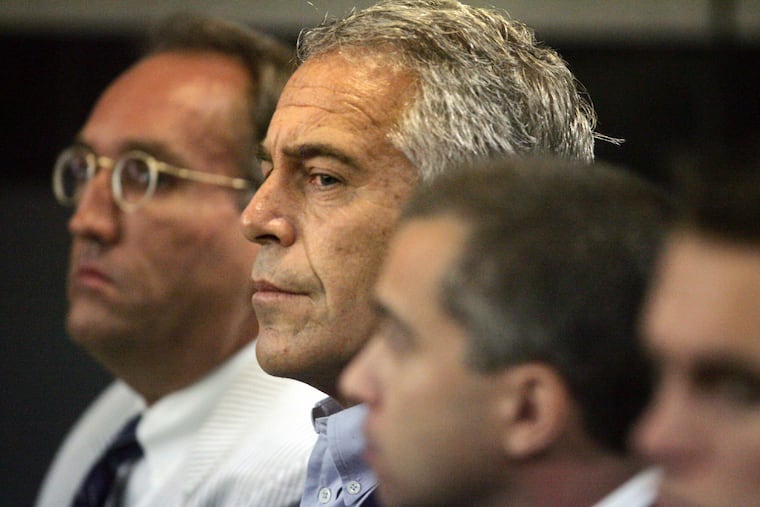Jeffrey Epstein’s crimes were serious, and so is suicide | Christine Flowers
The death of a man who was credibly alleged to have trafficked hundreds of young women, and to have committed rape, felt almost cathartic. But that doesn't justify flippant attitudes toward his apparent suicide.

The theme song for the 1970 movie M*A*S*H was called “Suicide is Painless.” The lyrics went: “That game of life is hard to play / I’m gonna lose it anyway / The losing card I’ll someday lay / So this is all I have to say / Suicide is painless / It brings on many changes / And I can take or leave it if I please.”
The lyrics resonate beyond the film, and the resulting TV show. Their sadness, resignation, and hopelessness capture perfectly the mind-set of someone who is tethered to this world by an almost invisible thread. Suicide seems “painless,” and life is the struggle.
A confluence of recent events made me think of the song’s sad relevance. First the apparent suicide of Jeffrey Epstein on Aug. 10, something that I am ashamed to say I announced as good news on Facebook. The death of a man who was credibly alleged to have trafficked hundreds of young women, and to have committed rape, felt almost cathartic. The wild conspiracy theories over which living politician was going to be helped or harmed by his death were irrelevant to me.
I chose not to dive into that muck. To me, what mattered is that this man would no longer be able to prey on young women.
Then I remembered that the week of Aug. 11 marked the fifth anniversary of Robin Williams’ suicide. When he died back in 2014, I barely noticed because it happened only two days after my mother passed away. The day he died I was standing in line at the funeral home, greeting mourners.
But in more recent years, I’ve reflected on the death of the great comic — a man who gave such joy to several generations ending his life with such sorrow.
I believe Jeffrey Epstein was evil, and looked upon the future as a continuous cycle of trials, convictions, sentences, and the type of physical torture that awaited him in prison. Hell, if he even believed in an afterlife, must have looked more appetizing.
Robin Williams was sick, struggling with neurodegenerative disease and depression, and may have looked upon the future as a gray place empty of the laughter he once conjured with his rubber-face expressions and quicksilver wit.
To both men, I imagine that the last stanza of the M*A*S*H theme song made some sense, for vastly different reasons: “The sword of time will pierce our skin/It doesn’t hurt when it begins/But as it works its way on in/The pain grows stronger, watch it grin.”
Whenever I think of suicide, and depression, of course I also think of my brother Jonathan. He wasn’t famous, and no one knows his name outside of our family circle and the few friends who still stop me and say “I went to school with him,” or “I remember what a great wrestler he was,” or “he sure loved Star Trek!” But he was a wonderful, valuable, vibrant presence in the lives of those who loved him, including his then 2-year-old-daughter.
And I think of a man who I did not know, but who was a good friend of my good friend, and who wrote a beautiful book about taking care of his mother in her final years of life. His name was George Hodgman, and his book Bettyville was a moving expression of the love we carry for our hometowns and families. He died last month in what his relative reported as a suicide. And I think of Anthony Bourdain, and Kate Spade. These bright souls were lost to the same brutal wave of despair.
Why am I listing all of these losses? Because when I saw the conspiracy theories cropping up about how Jeffrey Epstein was murdered and his death was made into a political football, I became angry. To me, Jeffrey Epstein may not deserve to be mourned. But the flippant way in which the manner of his death has been discussed is cruel.
Yes, there are credible questions about that death, including at the very least negligence on the part of prison personnel. I don’t blame people for wanting answers.
But am I wrong to ask for some sobriety in discussing suicide, even the suicide of a monster? I don’t think so.
The song, it turns out, is wrong. Suicide is not painless.